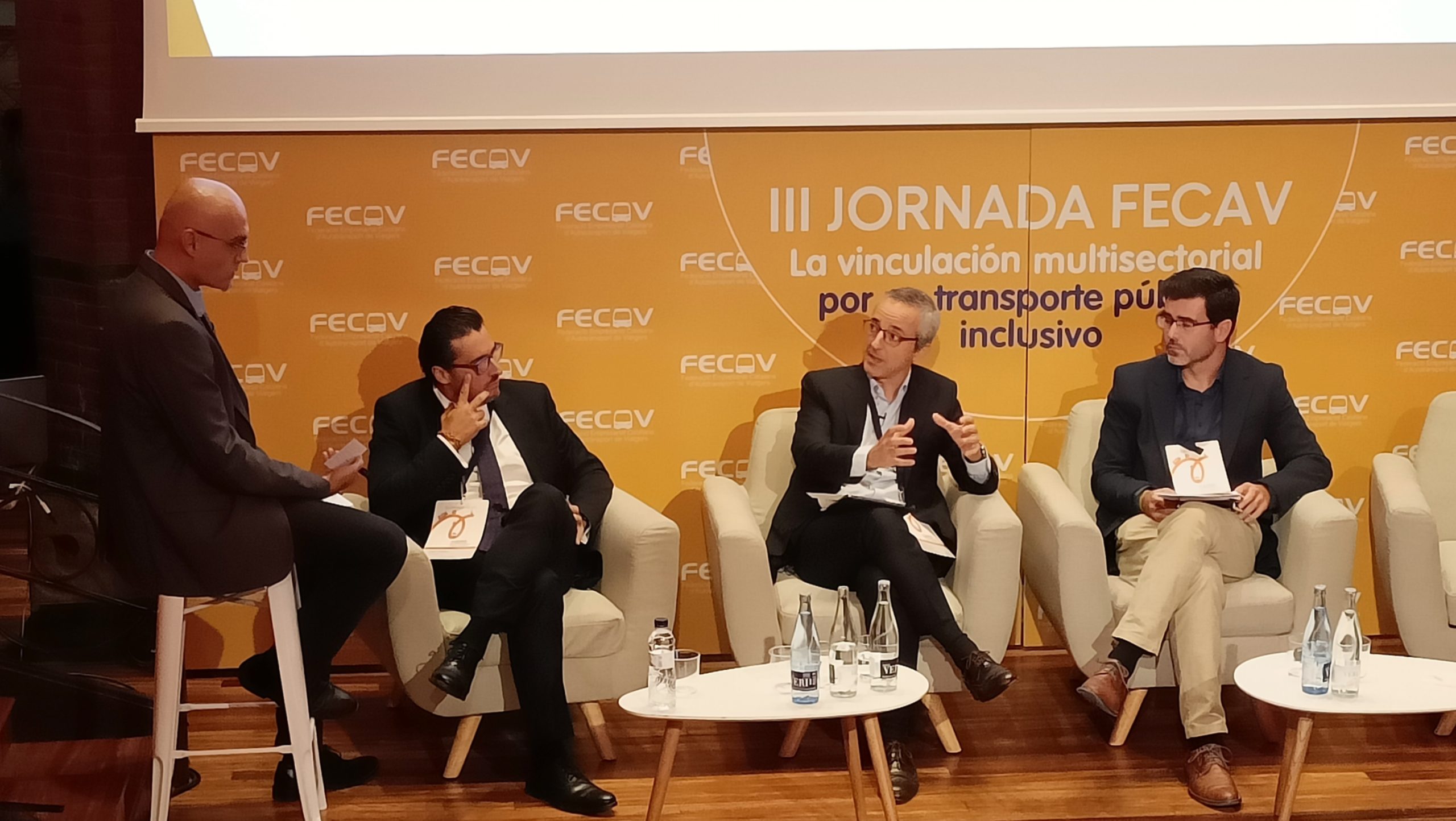17-10-2023
The managing coordinator of the Industrial Pact, Carles Rivera, has participated in the third edition of the annual conference organised by the Federació Empresarial Catalana d’Autotransport de Viatgers (FECAV), which was held last 17 October at the Palau de la Música Catalana under the title “The multi-sector link for inclusive public transport”. Specifically, Rivera took part in a round table on the discretionary bus service as a lever for cross-cutting development together with Iñaki Collado (IDEMICE) and David Sastre (consultant), and moderated by Daniel Gallego (Nexobus).
Rivera pointed out the need to analyse the mobility sector from a local point of view and taking into consideration its relationship with economic development. An efficient transport service is a key factor for the development of companies, job creation and the increase in GDP, he pointed out. And this need becomes even more evident in industrial estates, which often located far away from urban centres. Having a collective transport system – discretionary or public – is essential for attracting and retaining talent, as workers are increasingly valuing having access to sustainable mobility services.
35% of the industrial estates in the Metropolitan Region of Barcelona are not accessible using public transport. Rivera appealed to the need for a “pact” and to find shared solutions between public administrations, companies and social actors. It is necessary to improve governance structures and business associations, Rivera insisted, to have the necessary critical mass to enable the articulation of mobility services shared by the workers of several companies in the same industrial estate. Rivera also emphasised that collective transport solutions are not only motivated by reasons of environmental sustainability, but also social aspects, since they respond to the needs and expectations of workers.
Public transport financing
For his part, José Maria Chavarría, president of the FECAV, indicated that the regular bus is key to restoring territorial balance and promoting ecological transition. In this sense, he recalled the need to have a public transport financing law, both in Catalonia and in Spain. He also highlighted the need to promote collective public transport plans so that workers can access companies and to correct the current shortage of 20,000 drivers in Spain for the transport of goods and people.
Oriol Martori, director general of Transport and Mobility of the Regional Government of Catalonia, has pointed out that public-private collaboration must be strengthened to face environmental challenges and that policies and investments in public transport must be strengthened to improve social and territorial cohesion. At the same time, he agreed on the need to have a public transport financing law, to strengthen participation mechanisms and to improve mobility planning through new technologies and data. Finally, he announced that in 2024 the Government will integrate all the municipalities of Catalonia in terms of tariffs.
Tags: Industrial parks, Mobility, Public transport
